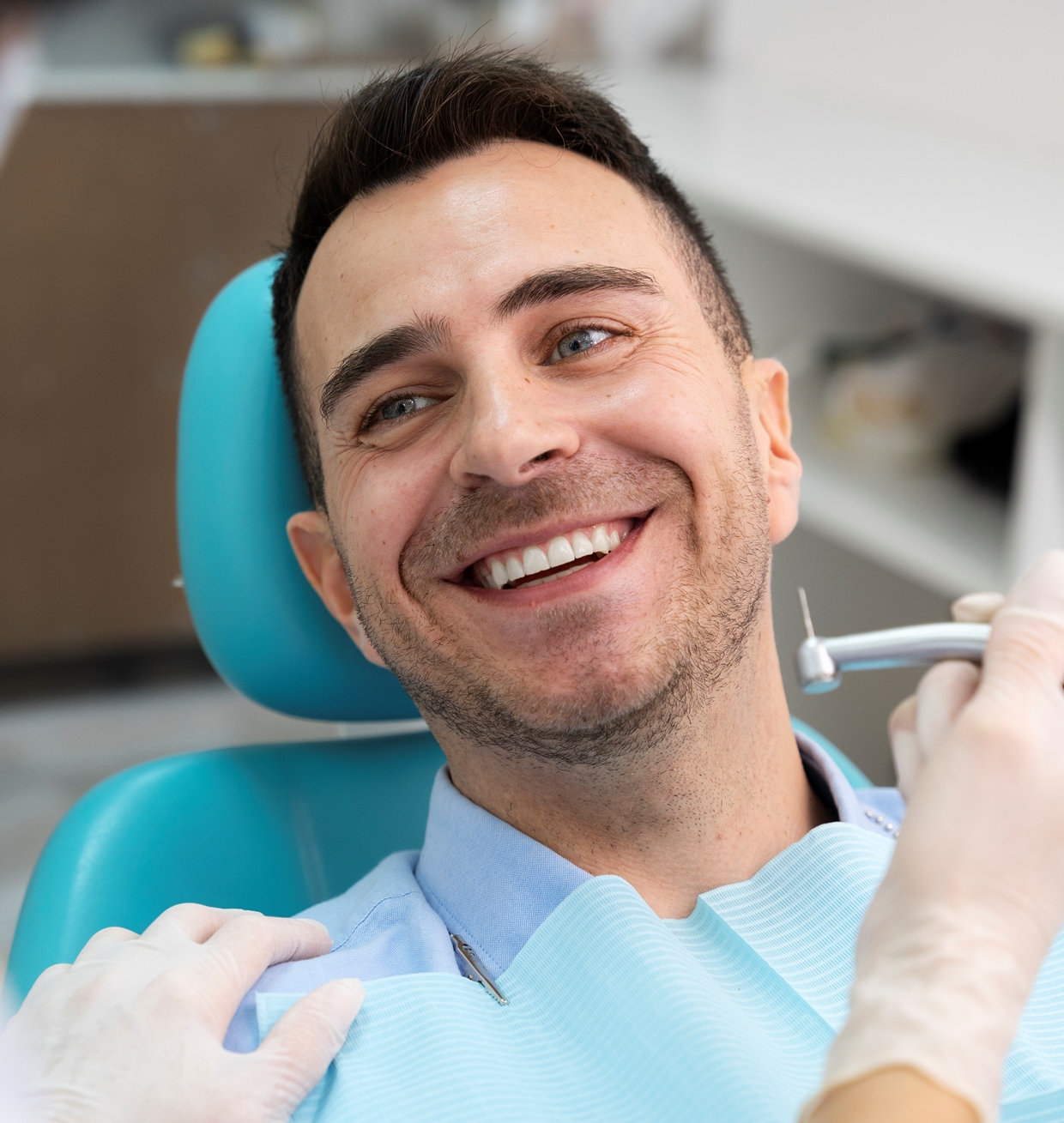Oral Lesions and Surgery
Oral lesions are abnormal tissue growths or wounds that occur in the mouth and surrounding areas. These lesions can be benign (non-cancerous) or malignant (cancerous) and often require surgical intervention. The oral lesions and surgery service we offer at our dental clinic aims to accurately diagnose and treat these lesions.
What are Oral Lesions?
Oral lesions are abnormal growths, wounds, or changes in the tissues within the mouth. These lesions can manifest in various forms, including:
- Aphthous Ulcers: Common, painful, and white sores.
- Leukoplakia: White or gray patches in the mouth, potentially a precancerous condition.
- Erythroplakia: Red, flat, or slightly raised lesions in the mouth, often with malignant potential.
- Fibromas: Benign soft tissue tumors.
- Papillomas: Wart-like lesions, often associated with the HPV virus.
- Hemangiomas: Red or blue lesions resulting from abnormal blood vessel accumulation.
- Mucocele: Swelling usually seen on the lip, caused by the blockage of salivary glands.

Diagnosis of Oral Lesions
Accurate diagnosis of oral lesions is critical for developing an appropriate treatment plan. The diagnostic process includes the following steps:
- Clinical Examination: Your dentist carefully examines the lesions in your mouth and assesses their characteristics.
- Biopsy: A small tissue sample is taken for laboratory analysis to determine the nature of the lesion.
- Radiographic Examination: X-rays or other imaging techniques may be used to assess the spread of the lesions and their relationship with surrounding tissues if necessary.
Surgical Treatment of Oral Lesions
The surgical treatment of oral lesions varies depending on the type, size, and location of the lesion. Surgical treatment processes may include:
- Excision: Complete removal of the lesion. Small lesions are typically excised under local anesthesia, while larger or more complex lesions may require general anesthesia.
- Curettage: Scraping and removal of the lesion. This technique is often used for benign lesions.
- Cryotherapy: Destruction of the lesion by freezing. Suitable for some benign lesions.
- Laser Surgery: Vaporization or cutting of the lesion using a laser. This method is precise and minimally invasive.
Post-Treatment Care for Oral Lesions
- Pain Management: Pain relievers are prescribed to manage discomfort after the surgical procedure.
- Hygiene: Maintaining oral hygiene reduces the risk of infection. Be gentle when brushing your teeth and rinsing your mouth.
- Diet: Consume soft and cold foods for the first few days. Avoid hot, spicy, and hard foods.
- Follow-ups: Attend regular check-ups to monitor the healing process.
Importance of Oral Lesions
- Early Diagnosis and Treatment: Early diagnosis and treatment of lesions prevent serious complications and increase the success of treatment.
- Health and Comfort: Treating lesions reduces oral pain and discomfort, improving your overall quality of life.
- Cancer Risk: Some lesions may have malignant potential, making early intervention critical.
Why Choose Oral Lesions and Surgery?
Oral lesions are important health issues that require timely and accurate treatment. At our dental clinic, we offer the best treatment options for oral lesions and surgery with our expert dentists. We are here to help you achieve a healthy oral structure.
Contact us to schedule an appointment or to learn more. We are here to help you maintain a healthy and comfortable oral structure!
